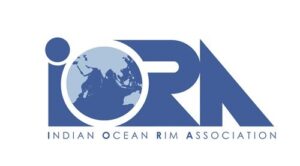GS II-International Organisation

Introduction
The recent Council of Ministers (COM) meeting of the Indian Ocean Rim Association (IORA) was held under the theme “Strengthening the Identity of the Indian Ocean.” This article provides a comprehensive overview of IORA, including its objectives, member states, and priority areas.
What is the Indian Ocean Rim Association’s Council of Ministers (COM) Meeting?
- The Council of Ministers (COM) meeting is an annual gathering of Foreign Ministers from IORA Member States.
- The Committee of Senior Officials (CSO), composed of senior foreign affairs officials, meets twice a year to discuss key issues.
- Decisions made by the CSO are presented to the COM for final approval.
- The COM and CSO serve as the governing bodies of IORA.
What is the Indian Ocean Rim Association (IORA)?
- IORA is an intergovernmental organization established on March 7, 1997, to promote regional cooperation and development among Indian Ocean-bordering countries.
- It fosters collaboration in areas such as trade, maritime safety, cultural exchange, and disaster management to enhance the well-being of member states.
- The IORA Secretariat is located in Cyber City, Ebène, Mauritius, and is hosted by the Government of Mauritius.
- The Secretariat manages and oversees the implementation of policy decisions, work programs, and projects adopted by the Council of Ministers.
IORA Member Countries
IORA consists of 23 member states, namely:
- Australia
- Bangladesh
- Comoros
- France
- India
- Indonesia
- Iran
- Kenya
- Madagascar
- Malaysia
- Maldives
- Mauritius
- Mozambique
- Oman
- Seychelles
- Singapore
- Somalia
- South Africa
- Sri Lanka
- Tanzania
- Thailand
- United Arab Emirates
- Yemen
Structure of the Indian Ocean Rim Association
- Council of Ministers (COM): The apex decision-making body that meets annually.
- Committee of Senior Officials (CSO): Meets twice a year to advance IORA’s agenda and oversee policy implementation.
- Current Chair: Democratic Socialist Republic of Sri Lanka (2023–2025)
- Previous Chairs:
- UAE (2019–2021)
- Bangladesh (2021–2023)
Six Priority Areas of IORA
IORA focuses on six key priority areas to enhance cooperation and development:
- Maritime Safety and Security (MSS)
- Ensuring safe navigation, trade security, and environmental protection in the Indian Ocean.
- IORA Working Group on MSS (WGMSS), established in 2018, advances the IORA Action Plan (2017-2021).
- The Indian Ocean Dialogue provides a platform for discussing maritime security issues.
- Trade and Investment Facilitation
- Reducing trade barriers, improving business environments, and promoting regional investment.
- The Indian Ocean Rim Business Forum (IORBF) integrates business perspectives into IORA initiatives.
- Fisheries Management
- Ensuring sustainable fishing practices and managing marine resources.
- Led by the IORA Fisheries Support Unit.
- Disaster Risk Management
- Enhancing regional preparedness and response to mitigate natural disasters.
- Tourism and Cultural Exchanges
- The Jakarta Concord (2017) promotes tourism, cultural heritage, and people-to-people interactions.
- Academic, Science, and Technology Cooperation
- Encouraging scientific research, technological innovation, and knowledge sharing among member states.
Other Focus Areas of IORA
- Blue Economy
- Promoting the sustainable use of marine resources to support economic growth and environmental conservation.
- Women’s Economic Empowerment
- Designated as a special focus area in 2013, highlighting IORA’s commitment to gender equality and women’s economic inclusion.
Importance of the Indian Ocean
- Strategic Geographic Location
- The Indian Ocean connects major economies across the Northern Atlantic and Asia-Pacific regions.
- Major Sea Trade Lanes
- It carries:
- 50% of global container shipments
- One-third of bulk cargo traffic
- Two-thirds of global oil shipments
- Home to 2.7 Billion People
- The coastal countries of the Indian Ocean exhibit rich cultural diversity, with various languages, religions, traditions, and cuisines.
- Resource-Rich Region
- The ocean contains significant fishing and mineral resources, including:
- Nickel, cobalt, iron, manganese, copper, zinc, silver, and gold deposits.
India’s Initiatives in the Indian Ocean Region
- SAGAR (Security and Growth for All in the Region)
- A comprehensive approach to maritime security, trade promotion, and regional development.
- Project Mausam
- Aims to revive historic maritime and cultural links among Indian Ocean nations.
- Indian Ocean Naval Symposium (IONS)
- A naval cooperation forum to enhance maritime security and regional collaboration.
- ASEAN-India Maritime Transport Cooperation
- Strengthens trade and connectivity between India and ASEAN nations.
Way Forward
- Enhancing maritime security and trade cooperation should remain top priorities.
- IORA must evolve as an effective platform for conflict resolution and regional stability.
- Strengthening sustainable development and environmental protection will ensure long-term growth in the region.




